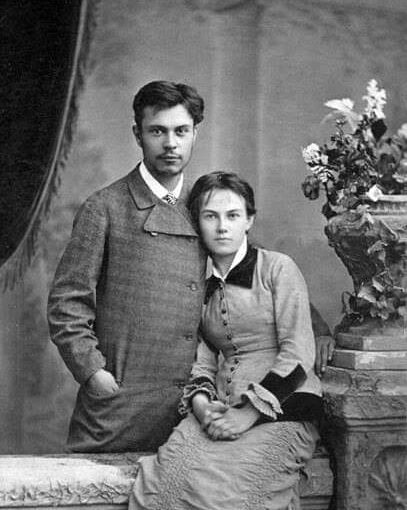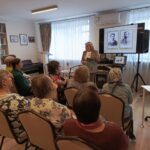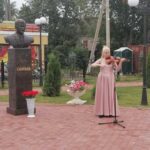Ivan Nikolaevich Sakharov (1860-1918) was born on 9 October 1860, in a family that counted generations of Russian priests. He spent his early years in the village of Vyezdnoye, in the Arzamas county, not far from Nizhny Novgorod. Breaking with the family tradition, Ivan received secular education, eventually becoming a well-known lawyer with a thriving Moscow practice.
Ivan Sakharov was an active member of the Constitutional Democratic Party (known as KD or kadets in Russian) and applied himself towards liberalization of the Russian Empire. His life partner Maria Domukhovskaya was an orphaned woman of nobility, who left her brief marriage of convenience and joined Ivan, whose political views she shared.
When the couple already had six grown-up children, they finally decided to wed in church and sent a petition to the Tsar to legalise their issue. (The Tsar granted their request and their children received new birth certificates, erasing their bastard status, as children born out of the wedlock were then known.) Despite this somewhat unconventional family arrangement, Maria was loved and respected by the entire Sakharov family, including her clergy in-laws.
At the turn of the 20th century, Ivan Nikolaevich opened a library in Vyezdnoye, the village where he spent his childhood. The library holds more than 36 thousand books and the local inhabitants still remember Ivan Sakharov. The researchers of the library keep an account of the Sakharov family history. Five years ago, in 2020, they established the Sakharov Public Garden, with an elegant fountain and a bronze bust of Ivan Sakharov.
Ivan Sakharov’s writings greatly influenced Andrei Sakharov, especially, on the issues of capital punishment and social justice.




